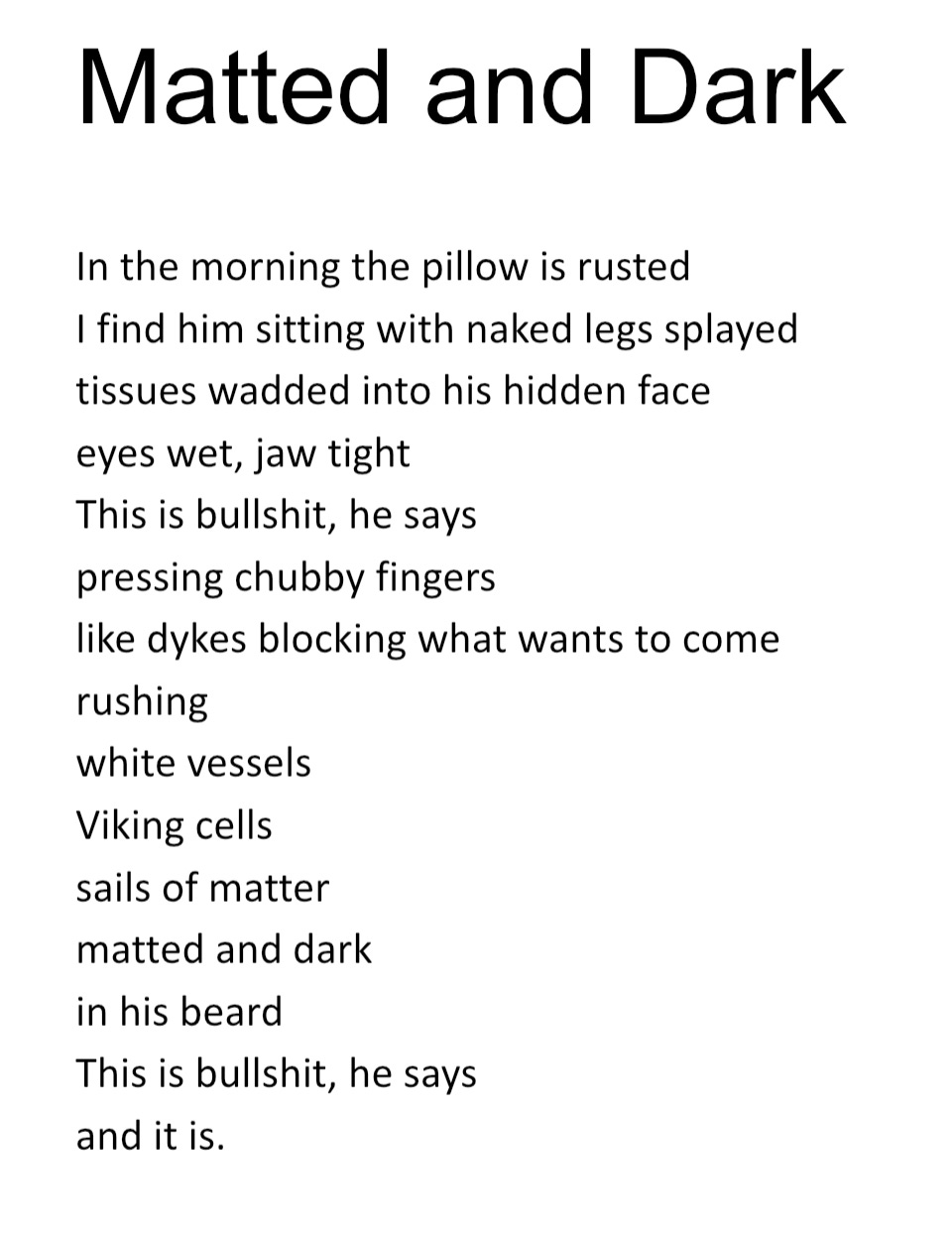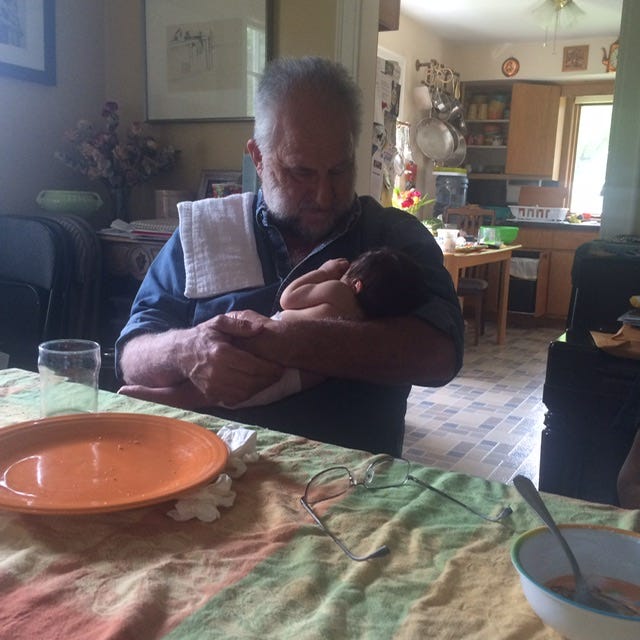82–In a chair across the room.
Watching him watch the world slip away, I wrote things down.
Memory can be a flip book, or a photo album. It can be woozy and sweet with the gristle removed, bread with the moldy crust clipped off, or a haunted house with each jump scare a trauma you hoped to never face again.
Much of what I remember from my father’s illness—many of the most vivid moments—are remembered because each evening, after whatever the day was like, I sat in the guest room on the pullout couch and wrote down what I’d seen, what I’d thought, what I’d felt.
Later, when he could no longer speak and my way of relating to him was to just be there with him—in a chair across the room, watching him watch the world slip away, hovering near with my notebook or novel or phone—I wrote things down while they were happening.
I believe that’s why much of the Slow Business poems are the way they are: catalogues of specific moments; images seen and emotions in-process; scenes of confusion, transition, constriction, hurt.
Like this one: a moment I came into the bedroom to find my father crossing yet another threshold in his illness and in his decline. I can still see it in my mind’s eye, and feel the humiliation, frustration, and anger.
Can you?



